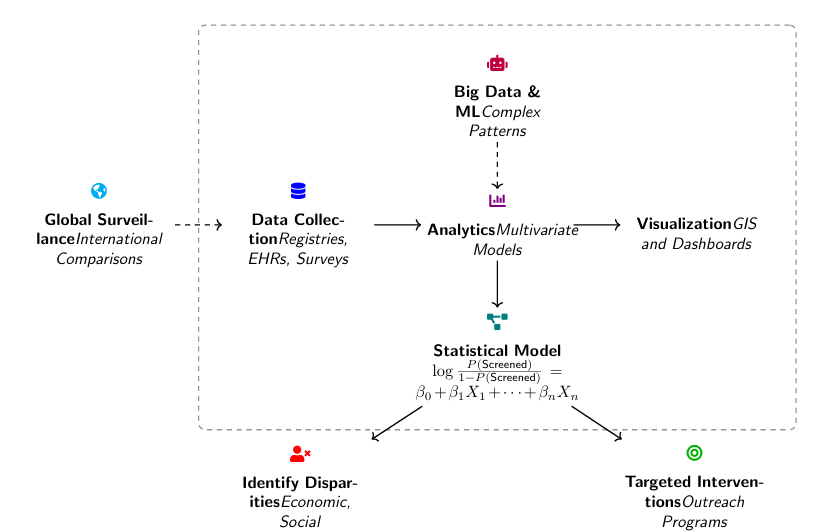Overcoming Social and Economic Barriers to Cancer Screening: A Global Data-Driven Perspective
Keywords:
Cancer control, Data-driven strategies, Digital health tools, Health disparities, Machine learning, Screening barriers, Social determinantsAbstract
Screening is one of the pillars of cancer control, facilitating early diagnosis and better results. Yet, the uptake of screening programs continues to be less than optimal globally owing to a variety of social and economic barriers. This paper offers an extensive overview of such barriers and suggests evidence-based solutions to their overcoming globally. We recognize key social barriers, such as cultural beliefs, stigma, fear, and ignorance, and economic barriers such as cost, poor health insurance, and weak health infrastructure. These factors all lead to screening disparities among populations and geographies. To redress the imbalance, we discuss innovative data-driven interventions and models. This involves the application of health data analytics to detect underserved populations, machine learning algorithms to forecast and target those with lower uptake likelihood, and digital health technologies (e.g., electronic reminders, mobile health apps, and telemedicine) to optimize access and uptake. We also consider computational models for resource allocation optimization and risk-based personalization of screening strategy. Considerations for roll-out of such strategies are discussed, including the need for integration into health services and for wide accessibility. Through the synthesis of evidence and approaches from across disciplines, this paper demonstrates how the application of data and technology can break down social and economic barriers to screening uptake, and contribute to a reduction in the global cancer burden.

